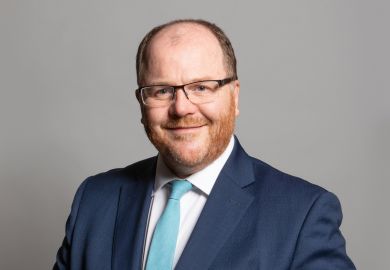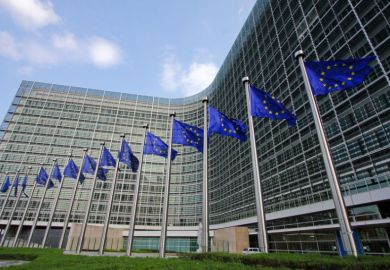UK universities are getting a helping hand from their German counterparts as they climb aboard Horizon Europe, after two years taking part as an outsider.
Since the start of Horizon, researchers based in the UK have been able to apply to most calls and join consortia as if the country were fully associated, except with funding provided by their home government.
Under the terms of a deal on full association agreed this month, from 1 January 2024 researchers in the UK will be treated like those from European Union countries – although some details, such as their access to calls on security-related technologies like quantum computing, must still be agreed among member countries.
At a meeting in Hamburg, representatives of Russell Group universities sat down with their research-intensive counterparts in the German U15 grouping, with the aim of smoothing the former’s return to Horizon.
“This was all very celebratory for about five minutes and then very businesslike: ‘Right, this is what we can do, this is a huge opportunity that this negotiation has come to a good conclusion, now we’re really going to run with it,’” Tim Bradshaw, chief executive of the Russell Group, told Times Higher Education.
He said that while the UK’s success rate had remained remarkably buoyant during the period of non-association, application rates were lower than for previous programmes.
Meetings are to be organised between research offices, to get the British up to speed on the latest Horizon fashions, particularly the “intangibles”, Dr Bradshaw said – the appetites and sentiments within the evaluation committees that award grants to people and projects.
From 2024, teams at UK institutions will again be able to lead Horizon research consortia. Karla Pollmann, president of the University of Tübingen, said update meetings could be two-stage, with Zoom reunions escalating to in-person “writing retreats”. “That is a very likely formula”.
Dr Bradshaw said several Russell Group universities had hung around after the sit-down in Hamburg to talk in depth about partnership arrangements with institutions in Germany.
“The sense was also very strongly, ‘We can build on very strong foundations.’ This is not something artificial – ‘Oh, let’s be opportunistic about it.’ It came from a very, very deeply felt and deeply held sense of commitment to our British friends,” said Professor Pollmann.
“We’ve had really good support across Europe: the Netherlands, Sweden, Switzerland even, France. They’ve been really supportive of the UK joining,” Dr Bradshaw said.
The long-awaited deal, made possible by the UK and EU tweaking the parts of the Brexit deal that squeezed trade and politics in Northern Ireland, has been widely celebrated across the country and bloc.
The government in Westminster has repeatedly renewed its funding guarantee for those who continued to apply in the wilderness years. That arrangement will run until EU funding returns at the turn of the year.
UK prime minister Rishi Sunak hailed the “bespoke deal”, which gives teeth to a previously agreed two-way “clawback mechanism”, guaranteeing the country money back if UK-based researchers win 16 per cent less than the country pays in, with similar terms for the bloc.
Science minister George Freeman said it was in the EU’s interest to publicise the UK’s full participation in the programme. “The EU has put aside significant resources to support and back full recognition of UK membership and encourage UK applications,” he told the Universities UK conference.
Register to continue
Why register?
- Registration is free and only takes a moment
- Once registered, you can read 3 articles a month
- Sign up for our newsletter
Subscribe
Or subscribe for unlimited access to:
- Unlimited access to news, views, insights & reviews
- Digital editions
- Digital access to THE’s university and college rankings analysis
Already registered or a current subscriber?







